
CURRENT OPINION IN CHEMICAL BIOLOGY
metrics 2024
Fostering Scholarly Dialogue in Biochemistry
Introduction
Current Opinion in Chemical Biology, published by Elsevier Science Ltd, stands at the forefront of its field, specializing in analytical chemistry and biochemistry. With an impressive impact factor and ranked in the top quartile (Q1) for both its disciplines, this journal consolidates significant advancements and perspectives in chemical biology from 1997 to 2024. Its Scopus rankings reflect its prestigious standing, with the journal positioned at #11 in Analytical Chemistry and #32 in Biochemistry, indicating a remarkable percentile standing of 93rd and 92nd, respectively. With a commitment to highlight cutting-edge research and foster scholarly dialogue, Current Opinion in Chemical Biology serves as an invaluable resource for researchers, professionals, and students seeking to stay abreast of the latest developments and innovations in the chemical biology landscape.
Metrics 2024
 2.33
2.33 6.90
6.90 7.20
7.20 202
202Metrics History
Rank 2024
Scopus
IF (Web Of Science)
JCI (Web Of Science)
Quartile History
Similar Journals
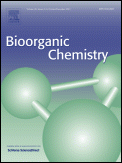
BIOORGANIC CHEMISTRY
Bridging laboratory research with real-world applications.BIOORGANIC CHEMISTRY, published by Academic Press Inc., a prestigious imprint of Elsevier Science, represents a cornerstone in the fields of biochemistry, organic chemistry, and drug discovery. With an impressive Scopus rank placing it in the top quartiles across critical categories—including Q2 for Biochemistry and Drug Discovery, and Q1 for Organic Chemistry—this journal has established itself as a vital resource for researchers, professionals, and students alike. Featuring a diverse array of articles that explore innovative methodologies and emerging trends from 1971 to the present, BIOORGANIC CHEMISTRY effectively bridges the gap between laboratory research and practical applications. Although not an Open Access journal, its rigorous peer-review process ensures the delivery of high-quality, impactful research that drives advances in the understanding and application of biochemistry. With an aim to facilitate scientific discourse and collaboration, it invites contributions that further the exploration of chemical processes within biological systems.
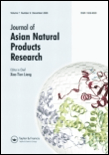
JOURNAL OF ASIAN NATURAL PRODUCTS RESEARCH
Fostering Collaboration for Groundbreaking ResearchJOURNAL OF ASIAN NATURAL PRODUCTS RESEARCH is a prestigious publication in the field of natural products, focusing on valuable research spanning analytical chemistry, pharmacology, and complementary medicine. Published by Taylor & Francis Ltd in the United Kingdom, this journal has established itself as a key resource for academics and professionals seeking to explore advancements in drug discovery and organic chemistry. With a converged publication timeline from 1998 to 2024, the journal boasts several commendable category quartiles as of 2023, reflecting its robust standing in the research community: Q2 in Complementary and Alternative Medicine, Q3 in multiple domains including Analytical Chemistry and Organic Chemistry, and Q4 in Molecular Medicine. Although it currently does not offer open access, the journal remains a valuable compendium for empirical research and innovative studies in areas such as pharmacology and medicinal chemistry. Researchers, professionals, and students alike will find the JOURNAL OF ASIAN NATURAL PRODUCTS RESEARCH to be an essential platform for sharing groundbreaking findings and fostering collaborations that lead to significant advancements in science and health.

CHINESE JOURNAL OF CHEMISTRY
Unveiling the complexities of chemistry since 1990.The CHINESE JOURNAL OF CHEMISTRY, published by WILEY-V C H VERLAG GMBH, is a distinguished peer-reviewed journal that has been contributing to the field of chemistry since its inception in 1990. With an impressive Q1 ranking in the Chemistry (miscellaneous) category and a Scopus rank of 67 out of 408, this journal is recognized for its rigorous scholarly standards and significant impact within the academic community. Renowned for publishing high-quality research, reviews, and insightful commentaries, the journal serves as a vital resource for researchers, professionals, and students keen on advancing their understanding of general chemistry and its applications. Although it does not offer open access, the journal remains an essential outlet for innovative chemistry research, attracting contributions from a global network of specialists. With its broad scope covering various aspects of chemistry and a commitment to fostering scientific dialogue, the CHINESE JOURNAL OF CHEMISTRY is poised to continue its role as a central pillar in the ever-evolving landscape of chemical sciences.
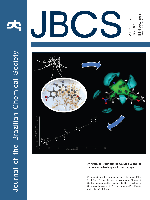
JOURNAL OF THE BRAZILIAN CHEMICAL SOCIETY
Empowering Chemists: Open Access to Cutting-Edge ResearchThe Journal of the Brazilian Chemical Society (ISSN: 0103-5053; E-ISSN: 1678-4790), published by the Sociedade Brasileira de Química, stands as a prominent outlet for disseminating high-quality research in the field of chemistry. Since its establishment as an Open Access journal in 1990, it has been committed to providing unrestricted access to innovative findings and discussions that propel the advancement of chemical sciences globally. Located in the vibrant research landscape of Brazil, this journal aims to showcase a wide range of topics including analytical, organic, inorganic, and physical chemistry, among others, catering to a diverse audience of researchers, professionals, and students alike. The journal holds a noteworthy distinction with a Q3 quartile ranking in the field of miscellaneous chemistry for 2023 and is indexed in Scopus, reflecting its growing influence in the academic community. With a publication cycle that spans continuously from 1990 through 2024, it serves as a vital resource for anyone seeking to stay informed about the latest trends and breakthroughs in chemistry.
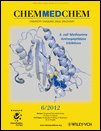
ChemMedChem
Transforming research into therapeutic solutions.ChemMedChem is a leading international journal published by WILEY-V C H VERLAG GMBH in the United Kingdom, specializing in the interdisciplinary fields of medicinal chemistry and drug discovery. With a commendable impact factor that places it in the Q1 quartile for Organic Chemistry and among the Q2 ranks in several other key categories including Biochemistry, Molecular Medicine, and Pharmacology, ChemMedChem serves as a vital platform for the dissemination of innovative research and transformative insights in the development of pharmaceutical agents. Since its inception in 2006, this journal has been at the forefront of advancing knowledge that bridges the gap between fundamental research and practical applications in medicine, making it an essential resource for researchers, professionals, and students alike. Although it currently does not offer Open Access options, the journal ensures high-quality peer-reviewed content that engages its audience and fosters collaborative scientific discourse.
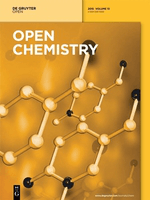
Open Chemistry
Advancing the Frontiers of Chemical KnowledgeOpen Chemistry, published by DE GRUYTER POLAND SP Z O O, is a distinguished peer-reviewed journal that has been serving the global chemistry community since its inception. With an ISSN of 2391-5420 and an E-ISSN also of 2391-5420, this open-access journal has been accessible to researchers and practitioners alike since 2015, ensuring a wide dissemination of high-quality research findings. Located in Germany, specifically at BOGUMILA ZUGA 32A STR, 01-811 WARSAW, MAZOVIA, POLAND, Open Chemistry aims to publish innovative research across various chemical disciplines, with special attention to miscellaneous chemistry and materials chemistry. It is currently ranked in the Q3 category for both fields as of 2023, reflecting its solid standing within the academic community, with specific ranks of 187/408 in General Chemistry and 153/317 in Materials Chemistry, corresponding to respective percentiles of 54 and 51. Open Chemistry not only enhances the accessibility of cutting-edge research but also serves as a vital resource for students, professionals, and scholars seeking to advance their knowledge in the rapidly evolving landscape of chemical sciences.
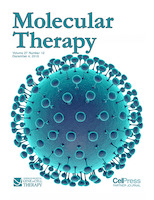
MOLECULAR THERAPY
Pioneering innovative therapies through molecular insights.MOLECULAR THERAPY, published by CELL PRESS, is a distinguished journal in the field of molecular biology and therapy, renowned for its significant contributions to drug discovery, genetics, and pharmacology since its inception in 2000. This prestigious journal, which holds a commendable position in the Q1 category across multiple disciplines including Drug Discovery, Molecular Medicine, and Molecular Biology, facilitates cutting-edge research and innovative therapies that aim to improve patient outcomes. With an impressive Scopus ranking that places it among the top journals in its field—such as rank #6 in Drug Discovery and #8 in Pharmacology—MOLECULAR THERAPY is crucial for researchers, professionals, and students seeking to advance their understanding and application of molecular techniques. The journal welcomes high-quality submissions that explore the therapeutic potential of molecular mechanisms, fostering a collaborative spirit within the scientific community to push the boundaries of modern medicine.

RSC Medicinal Chemistry
Empowering Global Collaboration in Medicinal ChemistryRSC Medicinal Chemistry is a pivotal journal in the realm of medicinal chemistry, published by the esteemed Royal Society of Chemistry. With a focus on innovative research that intersects various disciplines such as biochemistry, drug discovery, pharmaceutical science, and organic chemistry, this journal serves as a vital resource for researchers, professionals, and students alike. Its impressive impact factor and notable rankings—positioning it within the Q1 and Q2 quartiles across critical categories—underscore its significance in advancing knowledge and fostering collaboration within the scientific community. RSC Medicinal Chemistry is dedicated to open access, ensuring that cutting-edge findings on drug design and therapeutic applications are freely available to enhance global research efforts. With a commitment to publication excellence from 2020 to 2024, it is a prominent platform where groundbreaking ideas meet practical implications, making it indispensable for anyone committed to the forefront of medicinal advances.

French-Ukrainian Journal of Chemistry
Fostering Collaboration in Chemical SciencesFrench-Ukrainian Journal of Chemistry, published by TARAS SHEVCHENKO NATIONAL UNIVERSITY OF KYIV, is an esteemed open-access journal that has been contributing to the field of chemistry since 2013. With the aim to foster collaboration and knowledge exchange between French and Ukrainian scholars, this journal provides a platform for innovative research, reviews, and discussions that advance the understanding of chemical sciences. Operating under the ISSN 2312-3222, it boasts a commitment to accessibility, ensuring that all published content is freely available to researchers, professionals, and students worldwide. This initiative enhances the visibility of critical findings and insights in a rapidly evolving scientific landscape. Aimed at promoting high-quality research, the journal invites submissions that encompass a wide range of chemistry-related topics, thereby supporting the growth of interdisciplinary approaches and international cooperation in the field.

Annual Review of Biochemistry
Connecting Past Discoveries with Future InnovationsAnnual Review of Biochemistry is a premier publication in the field of biochemistry, renowned for its comprehensive and critical reviews that collate significant advancements and insights since its inception in 1946. Published by Annual Reviews in the United States, this journal maintains a prestigious position within the academic community, boasting a Q1 ranking in the biochemistry category for 2023, with an impressive Scopus rank of #4 out of 438, placing it in the top 1% of its field. With a commitment to excellence, it serves as an essential resource for researchers, professionals, and students striving to stay at the forefront of biochemical research. While the journal does not operate on an open-access model, it continues to provide key insights and knowledge that fuel innovation and discovery in the life sciences. As it converges research from various eras up to 2024, Annual Review of Biochemistry remains a vital contributor to the development of molecular biology and genetics, catering to the needs of a diverse readership keen on advancing their understanding and expertise in biochemistry.